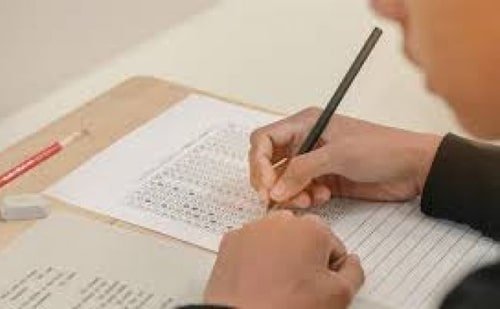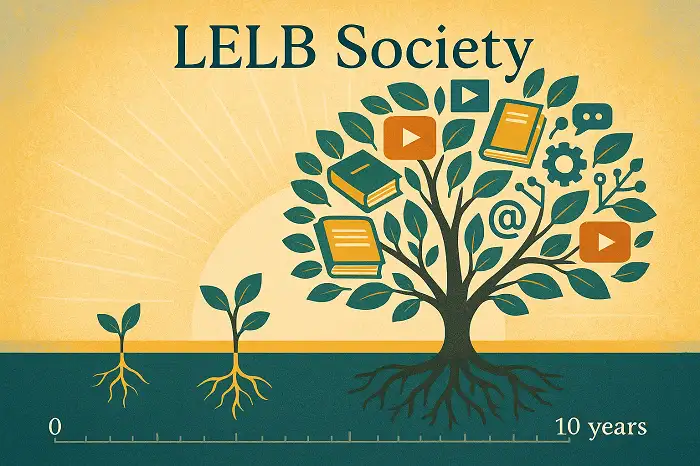IELTS – TOEFL Preparation Course | Session 5 Writing Task Topic: Some scholars and educationists maintain that final examinations must be replaced with continuous assessment to encourage the students to be active during the term. Some others believe that final examinations are the best way to evaluate the students’ competency. Write an argumentative essay on this topic and give reasons to support your claim. Paragraph on final exams To shore up the idea that continuous evaluation is better than focusing on final examinations, it is implausible to judge students as per only one examination in the whole semester. Because psychologically ...
Home » IELTS Essay Writing Practice » IELTS – TOEFL Preparation Course | Session 5

IELTS – TOEFL Preparation Course | Session 5
Updated: by Dr. Mohammad Hossein Hariri Asl
Time to Read: 1 minute | 454 Views | 48 Comments on IELTS – TOEFL Preparation Course | Session 5
Share This Post
About the Author
Dr. Mohammad Hossein Hariri Asl is an English and Persian instructor, educator, researcher, inventor, published author, blogger, SEO expert, website developer, entrepreneur, and the creator of LELB Society. He's got a PhD in TEFL (Teaching English as a Foreign Language).
Number of Posts: 4242



Following the analysis of formative and summative assessment, this has been proven that the former evaluation’s advantages is noticeably prominent. This is highly recommended by many educationists in every society in order to rise students’ competency during the courses or even in their later life. It is therefore expected that continuous assessment will be likely to encourage students to recognise their own hidden talent.
the former evaluation’s advantages are (Am I correct?)
Yes, you are right. Thank you.
That is really nice seeing you here!!
Exactly. He finally gave us this honor to attend our virtual courses after a such a long absence. ?
Welcome back! ?
Line 2: More noticeably prominent because you are comparing formative and summative assessments and the structure should be comparative.
Line 2: Rise ➡ raise (transitive verb)
Last line: It’s better to say: continuous assessment is likely to …, because it is currently being practiced in many institutions and education systems, including ours, i.e. LELB Society.
Dear all,
The problem has been resolved successfully.
Thank you for your patience.
See you on Tuesday.
On the other hand, the requirement of having final examination which is a kind of summative evaluation could not be denied. At the end of each instructional period, both students and teachers need to gain some information about the attainment of knowledge.They need to assess whether the whole course training would be influential enough to meet their stated goals. From this point of view, final examination is an impressive tool in evaluation.
So expressive and smooth! Thank you.
Line 3: It’s better to write in this way: … They need to assess whether the whole course training HAS BEEN …, because it refers to your previous sentence (at the end of each instructional period).
Line 3: Consider a space between the 2 words (knowledge. They…)
Moreover, examinations can be unfair in several ways. For example, a candidate’s entire career depends upon what he or she does on a certain day and hour of an exam. If the candidate is in poor condition, or if he or she has had some emotional trauma, these factors could have a negative effect on the student’s exam results. Furthermore, some students do not perform well under pressure and require more time to reach useful conclusions. Even though they may have studied diligently and know the subject matter thoroughly, their performance does not reflect their ability.
1. Your point of view is the same as Sasan (cons of the final examinations). I think it was better that you mentioned other pros of the continuous assessment. e.g. It improves the quality of student learning because it is more likely to be process-oriented and learner-involved. it helps teacher decide whether to move through the material of subject or explain more for those who are confused.
2. Line one: “final” examinations
3. 96 words in one paragraph
Thank you for your correction.
So accurate and true! Thank you.
Sorry for correction. I am just sharing what I have learned.
Instead of what he or she, it is better to write what they.
on a certain day and a specific hour of the exam(the structure of and should always be parallel.)
he or she has had some emotional -> they have been afflicted with (seems better).
Don’t mention it. I really appreciate you.
Appreciate (thank you) sth (not sb)
I really appreciate it / your efforts / your kindness / your correction, etc.
Thank you so much.
You’re welcome.
Thank you for offering your preferences, which seem to be plausible.
Line 2: in a poor condition
Last line: It’s better to use an adjective for ability, e.g. true / real ability.
I really appreciate your correction.
No problem.
To shore up the idea that continuous evaluation is better than focusing on final examinations, it is implausible to judge students as per only one examination in the whole semester. Because psychologically speaking, many reasons could bring about a situation in which students are at their best. For instance, imagine a pupil who gets a cold on the examination day and as a result, they cannot do their best. In so doing, the accuracy of the assessment gets on the verge of doubt. Hence, final examinations are not necessarily a true measure of a student’s abilities.
Hi. I think you should put “the” before “doubt” on the last line.
Thank you for the point.
The use of THE before doubt is not necessary.
Thank you.
My pleasure.
Sorry for correction. I am just sharing what I have learned.
Catch a cold
gets a cold on the examination day, and as a result(as you are stating a complete sentence after and you should put a comma here.
Thanks for your corrections.
Cold can collocate with get, too.
Line 1: It’s better to add a short clause before “it is implausible to judge…”. E.g. it is noteworthy to mention that it would be implausible to ….
Line 2: An independent clause or simple sentence cannot have because. When you use because, make sure that you should use a complex sentence.
Last line: It’s better to use measurement instead of measure, although a measure of something means a proof or sign of something.
Today, one of the challenges facing schools is growing diversity of the students and their needs. Therefore, the main purpose of testing is to assess student proficiency and their learnings. For this purpose, on the one hand some scholars believe that final examinations are the best way to evaluate the student`s knowledge of the subject, on the other hand, some others prefer to examine students continuously over the duration of their education. In what follows we investigate both ways.
Hi. I think you should put “a” or “the” before “diversity” on the first line and also you should put a comma after “hand” on the second line.
Thank you.
Thank you.
You are right, “a growing diversity of”
Yes, you are right again. It’s better to use a comma on Line 2, after hand.
Thank you.
Anytime.
Thank you.
So excited to see that we’re learning from each other. Just keep doing that.
learnings ➡ learning
You specifically mentioned schools. Don’t you think that these 2 phenomena (final exams and continuous assessment) might be applied to universities, as well?
Line 2: student’s or even students’ proficiency
Line 4: During / throughout / over the course of the term / semester
Thank you.
My pleasure.
In an argumentative essay you are supposed to take a position in the introduction and you should clarify your own point of view.
That is precisely correct. Thank you for making this point.
Sorry for correction. I am just sharing what I have learned.
of the subject; on the other hand,
of the subject. On the other hand,
And you forgot to take either a positive or negative position.
Dear Reza,
Performing peer-assessment is one of the best methods for learning. So, you don’t need to apologize for that.
Thank you all. Firstly, I look at the oxford dictionary to use words and their structures correctly and according to that the structure of “on the one hand …, on the other hand, ….” is correct. Next, about taking position I just mention to the writing task “The first essayist: The introductory paragraph, fairly neutral”. So, I think that the second essayist should take position. At last but not least, I pay attention to all and I really appreciate all correction.
Great! And I appreciate your precision.
You are already familiar with the procedure of our writing task.
The first essayist: The introductory paragraph, fairly neutral
The last essayist: The concluding paragraph
The other 3 essayists: 3 independent supporting paragraphs
We should have ONE OPPOSING idea.
The length of each paragraph: Around 70 words
Click here to listen to your classmates’ lectures in our previous sessions.